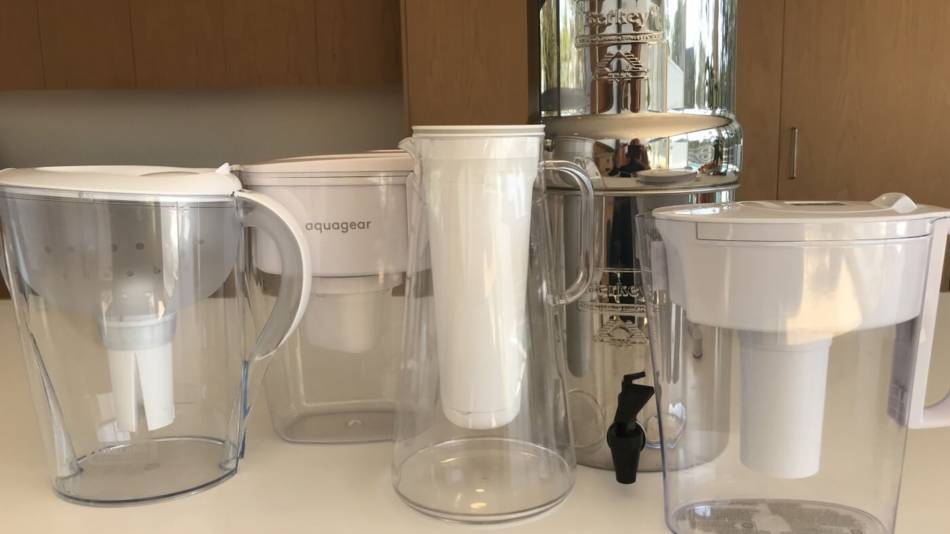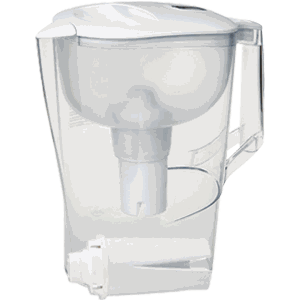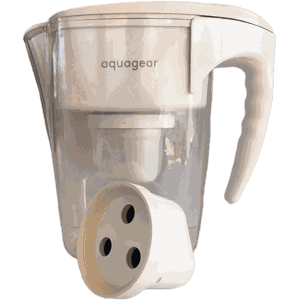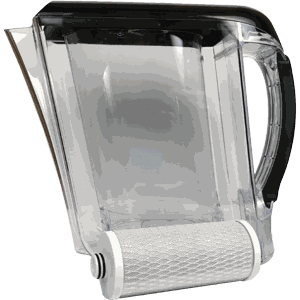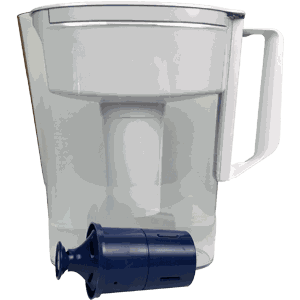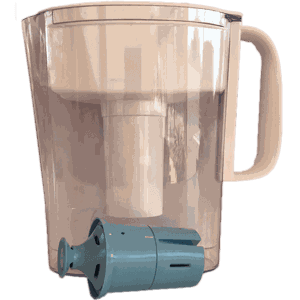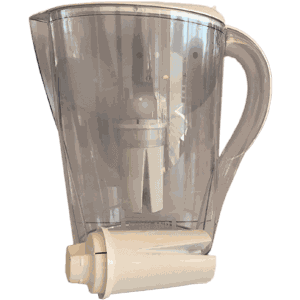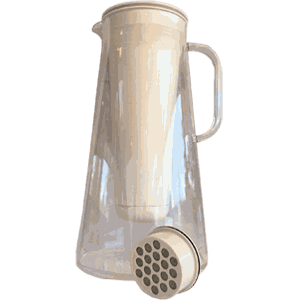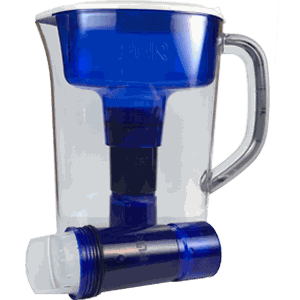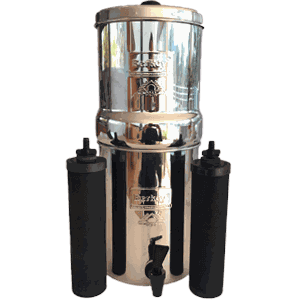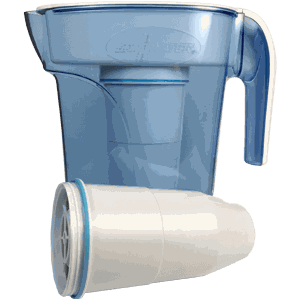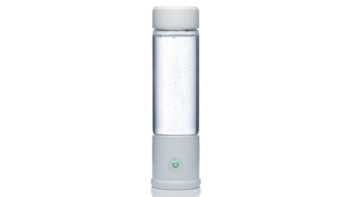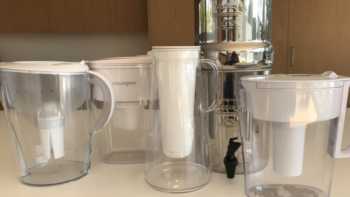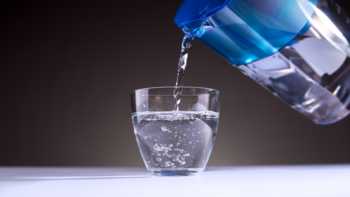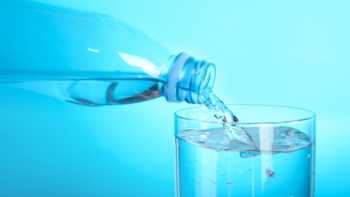Summary
Which water filter pitchers did ConsumerLab test?
Popular counter-top water filter pitchers from Amazon, Aquagear, Aquasana, Berkey, Brita, Kirkland (Costco), Lifestraw, PUR, and ZeroWater were purchased, tested, reviewed, and compared.Which are ConsumerLab's Top Picks among water filter pitchers?
If your water is chlorinated, we selected a pitcher that gets out the chlorine (which can impair water flavor) at very low cost (less than 1 cent per cup), while leaving fluoride (for strengthening teeth) and essential minerals.
- If you use well water high in fluoride, we selected two pitchers that can help by either reducing fluoride by 25% to 31%, at very reasonable cost, or removing it entirely.
- If your tap water has an earthy flavor, from high dissolved solids, we selected a pitcher that can entirely remove dissolved solids, although it will also remove nearly all fluoride.
- To remove microplastics, we selected a pitcher that has been shown to reduce the majority of plastic particles while not dumping in many carbon particles (as many filters did).
- To remove PFAS ("forever chemicals"), we selected a pitcher that has been shown to remove 100% and suggest some runners-up, based testing from an independent group, as we did not test for PFAS removal.
(Although we identified several pitchers that remove 90% or more arsenic from water, none is a Top Pick — find out why.)
How well did water filters pitchers remove each of the following? (See What CL Found):
- Chlorine -- which is added by many water systems as a disinfectant but can impact water taste -- was well removed except by all but one filter pitcher.
- Fluoride -- which may be added to water systems to help protect teeth -- was removed completely (which may not be desirable) by one filter pitcher, while the others removed 10.7% to 31% of the fluoride.
- If your water contains Lead and other toxic heavy metals -- Each pitcher did an excellent job at removing lead, cadmium, and mercury. For arsenic, some of the pitchers removed essentially all of it, while others removed as little as 15%.
- Total Dissolved Solids (TDS) — which includes many essential minerals — were left largely intact by most pitchers, as is generally desirable. Removing all dissolved solids removes essential minerals, can result in bland-tasting water, and reduces the life of filters. However, if your tap water has an unpleasant, earthy flavor, we found some pitchers that can eliminate these compounds or significantly reduce levels.
- Microplastics — Four water filter pitchers were able to remove the majority of microplastic particles. Among the others, several removed a modest amount and one actually added substantial amounts of plastic to the water. Some also added large amounts of carbon particles. Although not suggested in all product instructions, it may be helpful with some filters to discard several pitchers of water before drinking the water, as microplastic and carbon levels appear to decline with use.
- Perfluoroalkyl substances (PFAS, such as PFOA and PFOS) — We did not test water filter pitchers for their ability to remove potentially toxic PFAS, bit three of the products claim to remove at least 95% of PFOA and PFOS. However, as we explain, water filter pitchers may not be the best strategy for removing PFAS from drinking water.
How do water filter pitchers compare on cost?
The cost to get a cup of water ranged more than 7-fold from just 0.7 cents to as much as 5 cents after factoring the initial cost of the pitcher and filters, replacement filters, and the number of gallons handled by each filter. Some filters need to be changed after every 20 to 40 gallons of water while others can filter as many as 3,000 gallons. (See Cost).Avoid Counterfeits
Counterfeit water filters have been sold in the U.S. See our separate article about how to avoid buying counterfeit filters online.

